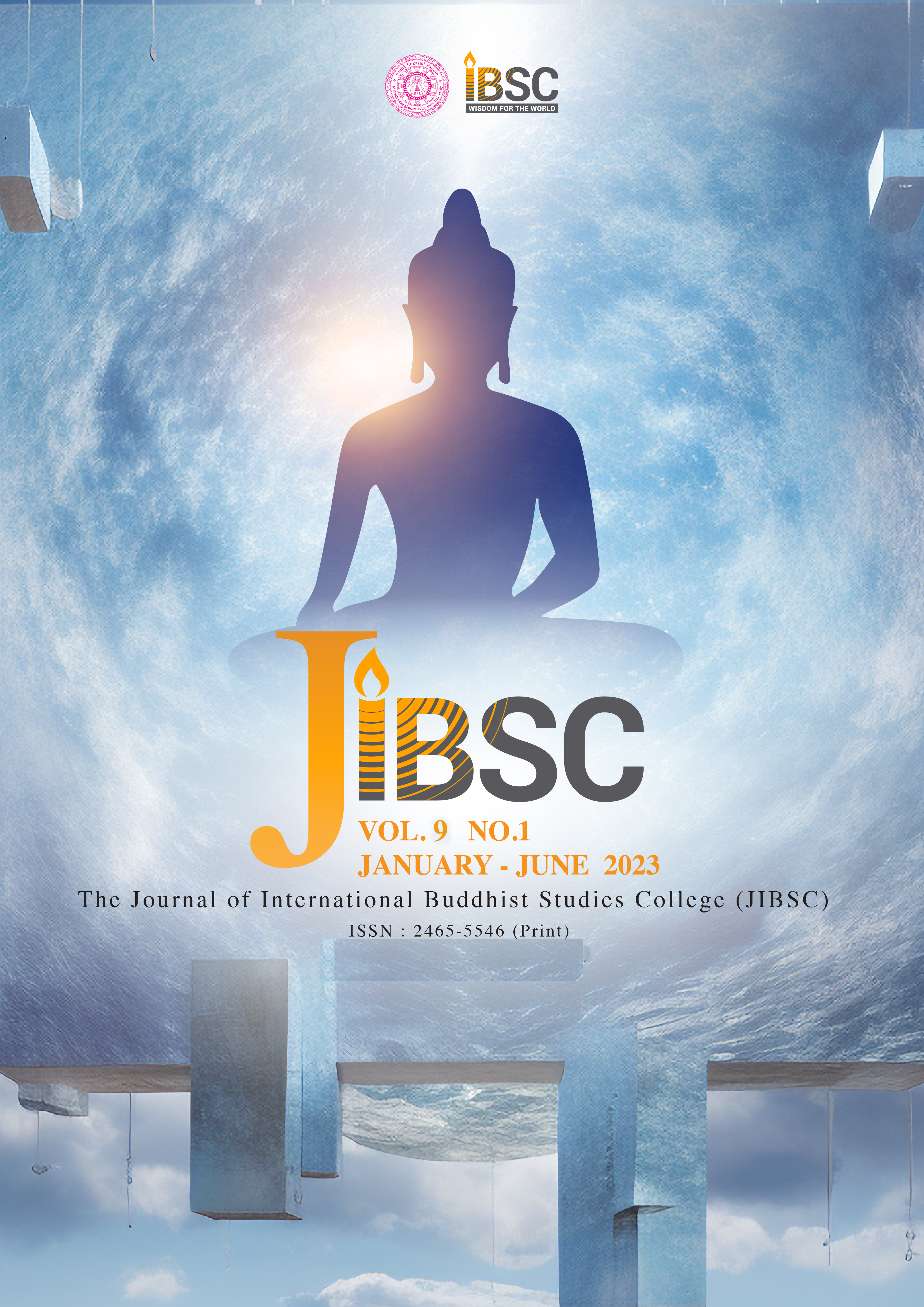The condition of suffering and happiness with the perspective of loka-dhamma
Main Article Content
Abstract
This article aims to study the condition of suffering and happiness with the perspective of Loka-dhamma. According to the study, it was found that the condition of suffering and happiness is the feeling. They consist of nature in human life. Loka-dhamma is a natural law. Humans must meet up within the course of a lifetime. Stupid people trying to engage with it and never get away. The Buddha saw that the people who are developing liberating insight can get free from this chain of life. Thus, the perspective of Loka-dhamma can make themselves up to know the right way. This concept dealing with seeing the truth. In addition, with the perspective of loka-dhamma, those who get a touch of this knowledge would do well in releasing themselves from physical and mental suffering, and practice of perfection in Kamma, well-meaning of human beings.
Article Details
The Journal of TCI is licensed under a Creative Commons Attribution-NonCommercial-NoDerivatives 4.0 International (CC BY-NC-ND 4.0) licence unless otherwise stated. Please read our Policies page for more information on Open Access, copyright and permissions.
References
Bhikkhu Pesala. (2018). Mahāsi Sayādaw A Discourse on Worldly Vicissitudes (Online). Retrieved 24 December 2020, from http://www.aimwell.org/lokadhamma.html#WhatisLokadham ma
Buddhist Study. (2015). Loka Dhamma 8. (Online). Retrieved 24 December 2020, from https://www.facebook.com/permalink.php?id=301415336686509&story_fbid=395490143945694
Dennis Candy (2008). Peace in the Buddha's Discourses: A Compilation and Discussion. Kandy: Buddhist Publication Society.
K. Sri Dhammananda Maha Thera. (n.d.). The Buddhist Way of Life for Householders. (Online). Retrieved 24 December 2020, from https://www.budsas.org/ebud/ whatbudbeliev/74.htm
Lokadhamma. (2014). The Unbeguiled One (8 Loka-dhamma) (A life that does not err) (Online). Retrieved 24 December 2020, from http://www.thaniyo.net/index.php?option =com_content&view=article&id=241:thaniya5747&catid=9:thaniyapucha2557&Itemid=13
Micael Widell. (2016). Matthieu Ricard on Buddhism and Happiness. (Online). Retrieved 24 December 2020, from https://micaelwidell.com/happiness-by-matthieu-ricard/
Nārada Mahāthera. (2002). Eight worldly conditions. (Online). Retrieved 24 December 2020, from https://www.budsas.org/ebud/budtch/budteach43.htm
Nārada Mahāthera. (2002). Eight worldly conditions. (Online). Retrieved 24 December 2020, from https://www.budsas.org/ebud/budtch/budteach43.htm
Phramaha Prapas Kaewketpong. (2011). Study of the Theravadā Buddhism concept of Human Destiny. (Ph.d Thesis). Banaras Hindu University, Faculty of Art, Philosophy and Religion.
Pinit Ratanakul. (2004, n.d). The Buddhist Concept of Life, Suffering and Death, and Related Bioethical Issues. In Eubios Journal of Asian and International Bioethics, 14 (141-146.). Retrieved from http://www.eubios.info/EJ144/ej144f.htm
Three marks of existence. Retrieved May 12, 2021, from https://en.wikipedia.org/wiki/ Three_marks_of_existence
U. Nyi. (2010). Practical Aspects of Buddhist Ideals. (U.K.: n.p.).
Y. Karunadasa. Pursuit of Happiness: the Buddhist Way. Retrieved from https://www.buddhism.hku.hk/documents/lecture2.pdf
Yogavacara Rahula. The way to Peace and Happiness. Taiwan: the corporate body of the Buddha Education foundation, 2008.


